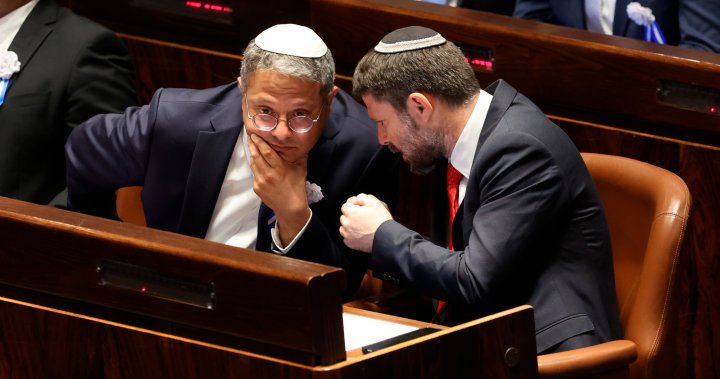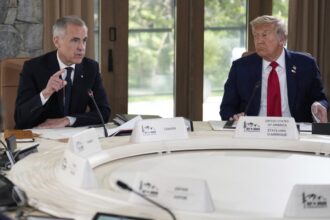In an unprecedented diplomatic move, Canada has joined the United States, France, and the United Kingdom in imposing sanctions against Israeli ministers Bezalel Smotrich and Itamar Ben-Gvir for inflammatory statements regarding the Gaza conflict. This coordinated action marks a significant shift in Western nations’ approach to their long-standing ally amid growing concerns over the humanitarian crisis in Gaza.
The sanctions target two of Israel’s most controversial far-right cabinet members. Finance Minister Smotrich and National Security Minister Ben-Gvir have repeatedly advocated for the expansion of Israeli settlements and made inflammatory remarks about Palestinians in Gaza. Their comments, deemed harmful to peace efforts by the international community, include calls for cutting humanitarian aid and statements suggesting Palestinian civilians should leave Gaza.
“These comments and actions undermine the prospects for a comprehensive, just, and lasting peace in the region,” said Foreign Affairs Minister Mélanie Joly in a statement released Thursday. “Canada remains committed to a two-state solution and views these ministers’ rhetoric as dangerous obstacles to that goal.”
The sanctions, which include asset freezes and travel bans, reflect growing international frustration with Israel’s military campaign in Gaza, which has resulted in over 37,000 Palestinian deaths since October, according to Gaza health authorities. Prime Minister Justin Trudeau’s government has faced mounting pressure from humanitarian organizations and progressive voters to take a stronger stance on the conflict.
Israeli Prime Minister Benjamin Netanyahu swiftly condemned the sanctions as “inappropriate pressure” that undermines Israel’s sovereignty. “These ministers were democratically elected by the Israeli people,” Netanyahu said in a statement. “This unprecedented intervention targets officials of the only democracy in the Middle East.”
The coordinated Western action comes amid stalled ceasefire negotiations and deteriorating conditions in Gaza, where the UN reports that famine is imminent in northern regions. The Biden administration, while maintaining military support for Israel, has increasingly voiced concerns about the humanitarian situation and the Netanyahu government’s post-war plans.
Political analysts suggest these sanctions represent a calculated diplomatic message rather than an attempt to fundamentally alter Israeli policy. “This is about drawing red lines around extreme rhetoric while preserving the core alliance,” explained Dr. Amira Hassan, professor of international relations at the University of Toronto. “Western nations are attempting to distance themselves from the most controversial elements of Israeli policy without abandoning their support for Israel’s security.”
For Canada, the move reflects the Trudeau government’s delicate balancing act between maintaining traditional support for Israel and responding to domestic criticism about Palestinian civilian casualties. Recent polls indicate Canadians are increasingly divided on the government’s approach to the conflict, with significant support for stronger humanitarian measures.
The sanctions have been welcomed by human rights organizations but criticized as insufficient by pro-Palestinian groups who continue to call for an arms embargo and stronger measures against Israeli policies in Gaza. Jewish advocacy groups in Canada have expressed concern that the sanctions could embolden antisemitism while failing to address the complex security challenges Israel faces.
As diplomatic tensions rise and humanitarian conditions worsen, the fundamental question remains: Can targeted sanctions against individual ministers effectively influence Israeli policy, or do they simply represent symbolic gestures in a conflict that continues to defy international resolution efforts?
For more on Canada’s foreign policy positions, visit CO24 Canada News or for broader international developments, see our World News section.























